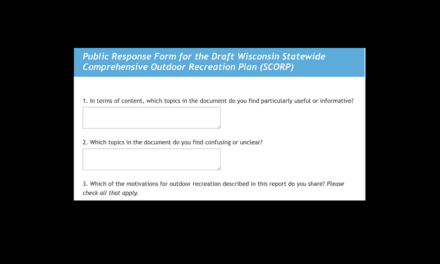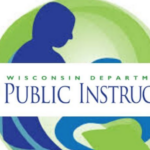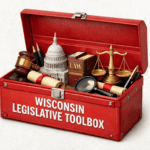The latest polling results from the Marquette Law School Poll (MuLawPoll) indicate a very tight race for president in Wisconsin.
- Vice President Kamala Harris leads with 52% against former President Donald Trump’s 48% among registered voters.
- Among likely voters, it is also Harris as the choice of 52% and Trump of 48%. These results include initially undecided voters who were then asked whom they would vote for if they had to choose.
- When the expanded ballot is tested, among likely voters, it is Harris 48%, Trump 43%, Independent Robert Kennedy, Jr. 6%, Chase Oliver of the Libertarian Party 1%, Green Party candidate Jill Stein 1%, Constitution Party nominee Randall Terry 1%, and Independent Cornel West 1%
These results highlight a few key points:
- Close Contest: Both at the national level and in crucial swing states like Wisconsin, the presidential race remains extremely competitive, with neither candidate securing a significant lead.
- Voter Sentiment: The polls reflect deep divisions among American voters, with each candidate drawing strong support from their respective bases but also showing the importance of independent voters.
- Methodology and Reliability: The Marquette Law School Poll is noted for its high transparency and accuracy, which adds credibility to these findings. However, like all polls, they come with margins of error and can fluctuate based on current events, voter turnout models, and other factors.
In the U.S. Senate race, Sen. Tammy Baldwin is supported by 52% to Eric Hovde’s 48% among registered voters. Among likely voters, Baldwin receives 52% and Hovde receives 47%. These results include initially undecided voters who were then asked whom they would vote for if they had to choose. When initially asked, Baldwin receives 48% and Hovde 44%, while 8% say they are undecided, among registered voters.
When the Senate ballot includes independent candidates, Baldwin receives 51%, Hovde 45%, Phil Anderson (the “Disrupt the Corruption” party candidate) receives 2%, and Thomas Leager (of the “America First” party) receives 2% among registered voters. Among likely voters, Baldwin receives 51% and Hovde 45%, with 2% for Anderson and 2% for Leager.
This snapshot from late August 2024 underscores the unpredictable nature of the election, emphasizing the importance of every vote in what could be decided by very narrow margins in key states.
The latest Marquette Law School Poll (@mulawpoll) regarding the presidential race in Wisconsin was conducted between August 28 and September 5, 2024, and involved interviewing 822 registered voters. T
Here are some key points regarding the facts and methodology of this poll:
- Sample Size and Margin of Error: The poll surveyed 822 registered voters, which provides a margin of error of +/-4.6 percentage points. This sample size is typical for state-level polls aiming to provide a reasonably accurate snapshot of voter sentiment.
- Methodology Changes: The Marquette Law School Poll has recently shifted towards using a list of registered voters based on official records, moving away from previous methods to potentially improve representation and reduce bias in responses. This change was implemented to address challenges in reaching certain demographic groups, like younger voters, through traditional polling methods.
- Transparency and Rating: The Marquette Law School Poll is highly regarded for its transparency, receiving a perfect score in this category from 538’s pollster ratings. This transparency includes sharing detailed methodologies, sample sizes for key subgroups, and raw data with research organizations like the Roper Center.
- Public Engagement and Methodology Testing: The poll uses various public engagement strategies, like debates and symposia, to discuss its findings and methodologies. Recent polls have been testing new methods to ensure they accurately reflect voter sentiment, especially in light of changing voter demographics and behaviors.
- Recent Trends: The poll shows a slight but notable shift from previous polls where Trump either led or was neck-and-neck with Harris. This indicates a dynamic electoral landscape in Wisconsin, a crucial swing state.
- Implications: Given the close race, these results underscore the volatility and competitiveness of the presidential race in Wisconsin, highlighting the importance of every vote and the potential impact of voter turnout, especially among groups that might be underrepresented in previous polls.
This poll’s methodology, focusing on transparency and adapting to modern voter contact challenges, aims to provide a more accurate reflection of current voter sentiment, which is crucial for understanding political dynamics in key states like Wisconsin.


















